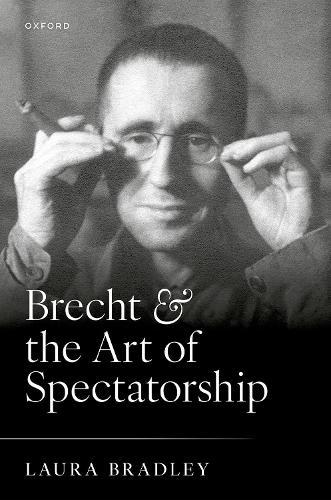Overview
Bertolt Brecht's epic theatre sought to change how spectators watched performances, equipping them to critique and intervene in the world outside the theatre. Taking its cue from his call for theatre to develop 'the art of spectatorship', this major new study explores vision, observation, and spectatorship in twelve of his plays, spanning his career. It relates this analysis to Brecht's own formative experiences of spectatorship, to his poems and theories, and to productions directed by Brecht and his close collaborators. Finally, it investigates Brecht's attempts to transform the composition of the audience and cultivate critical spectatorship at the Berliner Ensemble, the theatre he founded with his wife, the actor Helene Weigel, in East Berlin after the Second World War. Brecht's plays foreground scenarios in which watching matters, as characters witness acts of injustice, watch trials or punishments, engage in surveillance, or observe scientific experiments. These instances of onstage spectatorship play a key role in Brecht's drive to transform the viewing practices of the theatre audience, showing the audience what characters notice, what they overlook, and how they use or ignore the knowledge that they have gained through spectatorship. Drawing on archival material and sources that have previously been rarely consulted, Laura Bradley shows how Brecht and his close collaborators - Erich Engel, Benno Besson, Peter Palitzsch, and Manfred Wekwerth - dealt with onstage spectatorship in performance, presenting characters as observers and spectators from whom the theatre audience should learn. By combining analysis of text, performance, and reception, Brecht and the Art of Spectatorship provides rich insights into Brecht's plays, rehearsal methods, and stagings, and the experiences of spectators at productions of his plays in the Weimar Republic, in exile, and in the GDR.
Full Product Details
Author: Laura Bradley (University of Edinburgh, University of Edinburgh, Personal Chair of German and Theatre)
Publisher: Oxford University Press
Imprint: Oxford University Press
Dimensions:
Width: 16.30cm
, Height: 2.10cm
, Length: 24.00cm
Weight: 0.654kg
ISBN: 9780198934943
ISBN 10: 0198934947
Pages: 304
Publication Date: 31 July 2025
Audience:
College/higher education
,
Postgraduate, Research & Scholarly
Format: Hardback
Publisher's Status: Active
Availability: To order

Stock availability from the supplier is unknown. We will order it for you and ship this item to you once it is received by us.
Author Information
Laura Bradley is Personal Chair of German and Theatre at the University of Edinburgh. Her major publications include Brecht and Political Theatre: 'The Mother on Stage (2006), Cooperation and Conflict: GDR Theatre Censorship, 1961-1989 (2010), and Brecht and the GDR: Politics, Culture, Posterity (2011, co-edited with Karen Leeder). She is General Editor of German Monitor and a member of the Editorial Board of the Brecht Yearbook, and has worked with theatres and contributed to radio programmes on Brecht both nationally and internationally.



